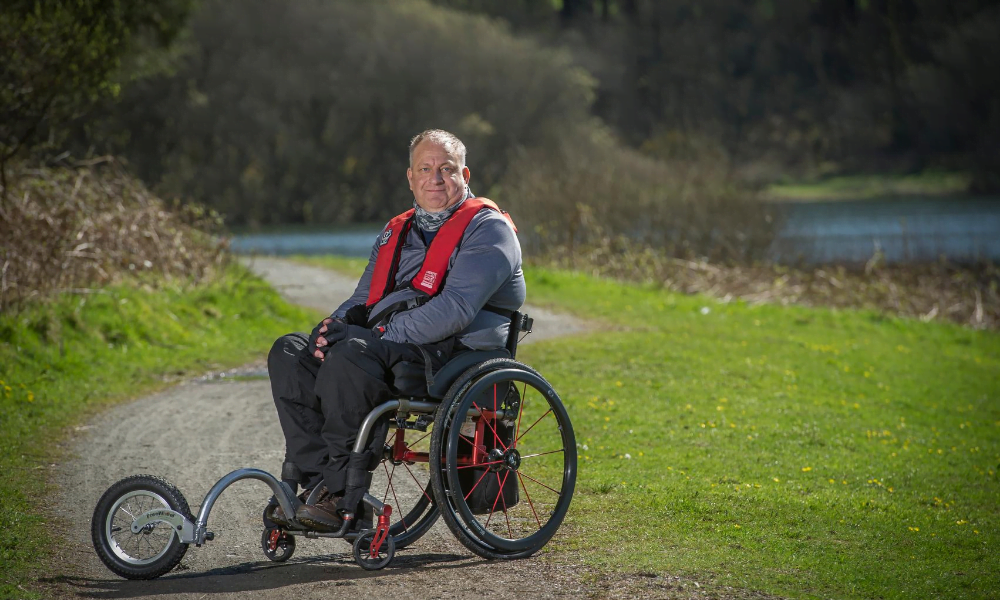Busting myths about ageing with a spinal cord injury
2 September 2020

Whether you have lived with a spinal cord injury for a long time or were injured later in life, getting older with a spinal cord injury may worry you. You might be concerned about your independence, or your loved ones. That’s why we spoke with Joy Sinclair, a specialist in ageing with a spinal cord injury, to bust some of the common myths surrounding this topic.
Myth #1: My quality of life will decline as I age
Ageing is a natural, inevitable process following maturity that we are all forced to confront and accept in our own way. Office for National Statistics research suggests that people aged between 65-79 are ‘happiest of all’ and feel that life is worthwhile.
Living with a spinal cord injury does of course create additional challenges which can impact your health. Keeping vigilant will ensure your quality of life remains good. Regarding pressure ulcers, don’t assume you won’t get one even if you’ve never had one before. Regularly check your skin and relieve pressure. Take care to reduce the amount of times you transfer in a day too – this will look after your upper limbs, and prevent shearing injuries that could turn into pressure ulcers.
Keeping an eye on your weight is also important. Being overweight or underweight can both cause problems. Good nutrition is key, and having the right amount of protein in your diet can keep your skin in good condition.
Don’t hesitate to speak to your healthcare provider if you have any questions.
Myth #2: People with a spinal cord injury have a shorter lifespan
Generally speaking, people with a spinal cord injury can expect to live a near normal lifespan. Taking care of your general health and paying attention to spinal cord injury specific conditions whilst attending your spinal cord injury centre for regular medical check ups, will help prevent complications.
Myth #3: My ageing process will be radically different from someone without a spinal cord injury
Not everyone ages in the same way or at the same rate. Factors which influence the way a person with a spinal cord injury ages include; level of injury, age, genetics, lifestyle, weight, health history, standard of care and co-morbidities.
According to the SIA Survey on Ageing with a spinal cord injury (2008), less than 7% of people with a spinal cord injury describe their health as poor or very poor. The vast majority perceived their health as good.
Myth #4: I am worried that I will lose my independence if my housing situation changes
Many housing providers aim to help disabled people retain their independence. The National Housing Federation has information about supported housing, and Age Uk has a fact sheet about housing with care. Back Up’s 2017 research into ageing with an spinal cord injury , heard from older people with a spinal cord injury about the importance of housing.
“Getting the right housing is vital for maintaining independence”
“I have moved to a bungalow – smaller, cheaper to run, easier.”
Myth #5: There is no one else like me, I won’t be able to get spinal cord injury support at my age
You are not alone! There are 14.1 million disabled adults in the UK, and 44% of pension age adults live with some form of disability.
If you need support after spinal cord injury, Back Up can help with peer support and vital information. Find out what support is available.
Other resources:
Aspire
Age UK
Disability Rights UK
Scope
Spinal Injuries Association
Spinal Injuries Scotland
UK government advice
www.age-confident.com
If you have been affected by any of the topics in this article, don’t hesitate to get in touch with Back Up’s services team.


